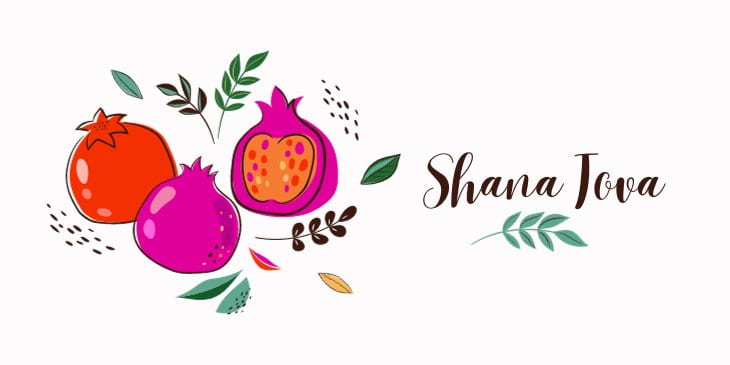Rosh Hashanah is a very important holiday in the Jewish faith. In the Jewish faith, people celebrate Rosh Hashanah on the first and second days of Tishrei, the seventh month of the Jewish calendar, as it marks the beginning of the Jewish New Year. The holiday commemorates the creation of the world and marks the beginning of the Days of Awe, a 10-day period that ends with Yom Kippur.
Rosh Hashanah will begin at sunset on Friday, Sept. 15, 2023, and continue through sundown on Sunday, Sept. 17.
In Israel, Rosh Hashanah is a public holiday, and many businesses and schools are closed. Families gather for festive meals, and many people attend synagogue services.
Customs, Symbols, and Traditions
There are many customs, symbols, and traditions associated with Rosh Hashanah. Some of them are:
- Preparing during the Hebrew month of Elul
- Festive dinner with family or friends before attending services at a synagogue that night and again the following day
- Attending services at a synagogue
- Blowing the shofar in the synagogue
- Eating symbolic foods such as apples dipped in honey, pomegranates, and round challah bread
Rosh Hashanah is a time for reflection, repentance, and renewal in the Jewish faith. It is a time to think about the past year and ask for forgiveness for any wrongdoing. The customs, symbols, and traditions connected to the holiday aid Jews in purifying and rejuvenating themselves spiritually for the upcoming year.

